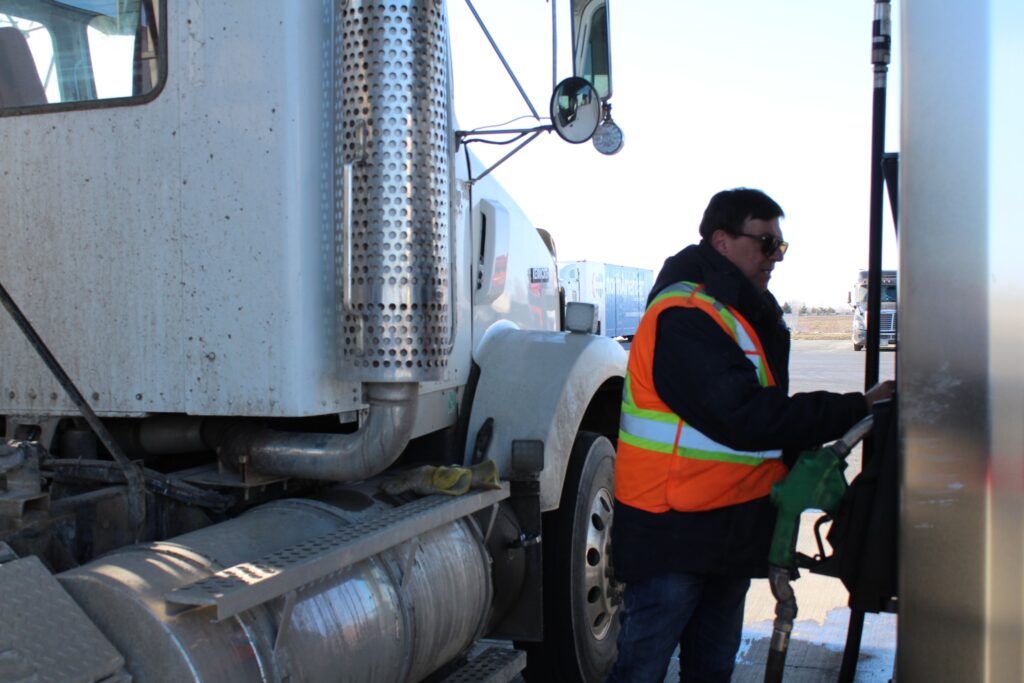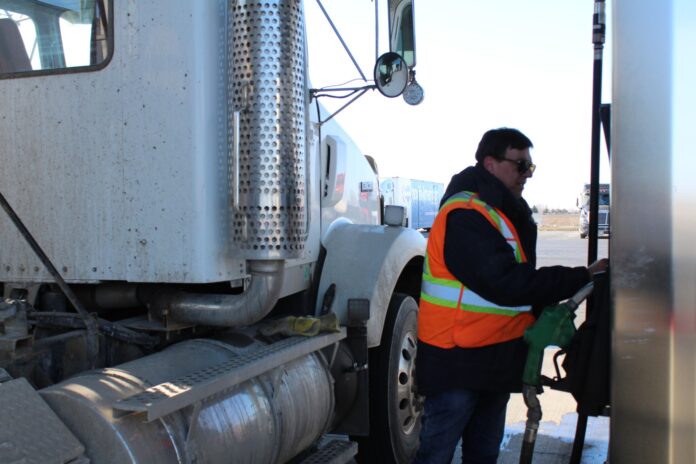[ad_1]
Falling spot market volumes and rates don’t tell the complete story about the current economic scenario, according to industry analysts at FTR.
During a State of Freight webinar July 14, Avery Vise, vice-president – trucking for FTR, noted spot market volumes are shifting back to contract freight. Total truck loadings are holding steady while spot market volumes are decreasing, Vise noted.
“While we have seen a cooling in the spot market, the contract market has picked up that volume and overall volume is holding more or less steady,” he explained, referring to the dry van and refrigerated segments.
Spot market rates (excluding fuel surcharges) are about $1 a mile lower than last year’s record highs, but still at about pre-pandemic levels. And despite the fact fleets say they can’t find drivers, June marked record trucking employment in the U.S., Vise added.
The U.S. trucking industry added 31,000 jobs in April and May, the second strongest two-month period for trucking job growth on record. The job growth suggests there’s still strong freight demand, Vise reasoned.

“For that much hiring to take place, freight can’t really be collapsing. There seems to be ample availability of drivers, otherwise [fleets] wouldn’t be able to hire them.”
But where are those drivers coming from?
“They’ve been there all along, just in a different part of the market,” said Vise. Many may have been part of the record number of trucking start-ups seen last year, as owner-operators left carriers and started their own authorities to chase hot spot market rates. With falling rates and rapidly rising diesel prices, Vise feels some of those are already going back to being company drivers.
The number of authority revocations is on the rise, suggesting those independent truckers are going back to driving for carriers.
Truck utilization – another measure of industry health – remains high, though it has come down slightly as payroll employment has increased.
Eric Starks, CEO of FTR, gave an overview of the macro-economic picture and wasn’t overly concerned about a recession. But he didn’t rule out a slowdown.
“If we are in a recession right now, I’ll take it,” he said. “This is an environment that feels radically different than any other recession. But then again, we have never had anything like this pandemic happen in our lifetime that we can compare this to.”
Pent-up demand will likely continue to drive manufacturing and consumers continue to spend even as inflation rises. Starks doesn’t think the U.S. will enter recession this year, though economic growth is likely to slow.
Looking at the trucking industry specifically, Vise agreed there’s little cause for concern of a major collapse. The industrial sector, which accounts for a significant amount of freight demand, remains strong, he said.
[ad_2]
Source link







